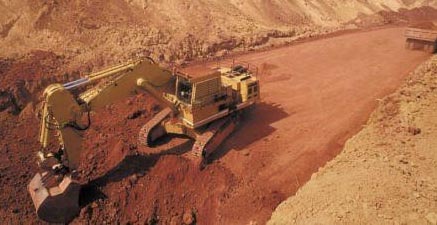
The Association of Professional Women Engineers of Nigeria (APWEN) has stressed the importance of enhancing the inclusion of women in the extractive industries, especially mining.
It also noted the immense potential for women’s contributions, despite challenges like gender stereotypes and limited access to education.
This call to action was made by APWEN President, Dr Adebisi Osim, at the sixth edition of the Nkechinyere Isigwe annual lecture, with the theme: ‘Can Women Thrive in Mining? Breaking Barriers and Seizing Opportunities in the Extractive Industries in Abuja.
She stressed the need for actionable solutions to overcome barriers faced by women in the traditionally male-dominated industry.
Dr Osim noted that the lecture aimed to inspire and equip participants with strategies to support and uplift women engineers in mining and other extractive sectors.
She said: “The extractive industries, while traditionally dominated by men, offer immense potential for women to contribute their unique skills and perspectives. However, women face significant challenges, including gender stereotypes, limited access to education and training, and discrimination in the workplace.
“Today, we are privileged to have a distinguished panel of experts who will discuss these issues and explore strategies for empowering women in the mining sector.
“Their insights will undoubtedly inspire us to work towards a more inclusive and equitable industry. We will explore strategies for creating an inclusive environment that supports and uplifts women engineers and professionals in this industry.”
In his remarks, the Director-General of the Nigerian Mining Cadastre Office, Engr. Obadiah Simon Nkom, who was represented by the Director in the agency, Mrs. Muhammadu Indo, noted that Nigeria possesses over 3 billion metric tonnes of iron ore reserves but lags in iron and steel development.
He urged the new APWEN Executive Committee to embrace the challenges ahead and push for excellence in materials engineering.
MCO boss said: “Iron is an important resource for the production of stainless steel, which improves transportation networks by producing lightweight, high-strength components that are fuel efficient. Stainless steel is crucial in many areas, including building, manufacturing, and telecommunications.
“There are over 3 billion metric tonnes of iron ore in deposits found in Kogi, Enugu and Niger State, as well as the Federal Capital Territory. Iron ore production in Africa is dominated by South Africa, Mauritania and Algeria. Nigeria is one of the countries with over 3 billion metric tonnes of iron ore in reserve and yet remains underdeveloped in iron and steel development.
“Nigeria has various iron ore resources, but the purest are in and around Itakpe, Kogi State. Nigeria’s iron and steel sector must be developed to achieve long-term industrialization, economic growth, and technological improvement.
“However, obstacles like insufficient finance, planning, and implementation, political interference, corruption, mismanagement, and political concerns for plant location impede the sector’s growth. Addressing these difficulties and Fostering sustainable iron and steel production are critical to Nigeria’s industrialization and economic development.
“Iron and steel industry needs to be taken seriously for national growth and development and conscious efforts need to be dedicated to reviving iron ore mining at its full scale.”
Also, the Managing Director of Deep Rocks Mineral Limited, Martin Kwaplong, stressed the essential role of women in the mining and mineral industry, stating that they have historically been vital to the mineral extractive sector.
He said: “They fully participate in the extraction and processing of alluvial minerals, assisting their male counterparts in transporting the extracted materials to rewashing sites and in separating these minerals from gangue or tailings at processing factories.
“We also have women managing mining sites as sponsors, purchasing unearthed minerals and supplying them to off-takers. Additionally, women serve as agents between mine owners and local investors.”
Isigwe stressed her commitment to capacity development, sharing insights on the importance of mentorship and training to empower future generations of engineers.
The event underscored the need for a more inclusive environment in the mining sector, where women can thrive and make significant contributions.






